What being vegan actually means...
No, it doesn't just mean you eat hummus all day...
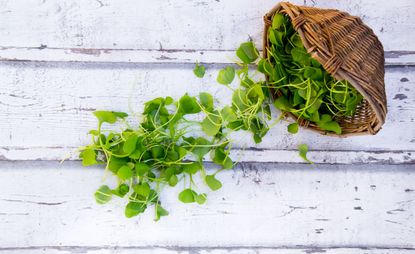

No, it doesn't just mean you eat hummus all day...
The number of vegans in Britain has risen by more than 360 per cent over the past decade, with more and more people switching to either a full on vegan diet or plant-based way of life. Along the way, this spike in vegan converts has sparked a fair few debates including discussion around whether a vegan diet is more, or less healthy, what counts as veganism (are eggs included or not?) and so on.
So, to help dispel fact from fiction, we have put together a helpful guide to equip you with all the info you need before you decide to embark on a new way of eating. And have asked Go Vegan World's founder Sandra Higgins and nutrition expert, Luciano Venezia, Co-Founder of EDO – an app designed to help vegans with their daily choices - to talk further about veganism so that we can uncover the myths from the facts.
What is veganism?
Sandra says: 'Veganism means non-violence. It describes a way of living in alignment with the value of justice that avoids causing unnecessary harm to all sentient life. There is no ingredient in the lives or bodies of other animals that humans need for their health or wellbeing. Therefore, we use other animals for reasons of taste, pleasure, convenience and tradition.
Every year 7 billion humans breed and kill 70 billion land animals and kill trillions of fish for food. Therefore, while veganism is not a diet, how we eat greatly affects other animals. Vegans avoid participating in unnecessary violence by not using or viewing other animals as food, clothing, entertainment, research tools or objects.
The greatest problem on earth today is the notion that some lives matter less than others. We imagine that non-human lives hardly matter at all. We live as though our difference from other species entitles us to use them and that they exist for our benefit. This view is not only inaccurate, it is unethical.'
Luciano takes a similar stance, 'Put simply, being a vegan means eating only plant based foods, excluding all animal products such as meat (including fish, shellfish and insects), dairy, eggs and even honey.
Marie Claire Newsletter
Celebrity news, beauty, fashion advice, and fascinating features, delivered straight to your inbox!
There are a number of different types of ‘vegan’ and of course a number of different reasons why an individual would choose to follow a vegan diet. Some choose to go vegan to avoid the exploitation of animals, others are concerned about the environmental impact of the dairy industry, while others prefer a vegan diet for health reasons.'
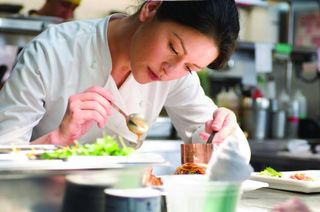
How healthy is a vegan diet?
Sandra explains, 'All the major world nutrition and dietetics associations declare that a plant diet, devoid of any animal products, can meet all our nutritional requirements, and help prevent and treat some of the most significant burdens of disease in the Western World including heart disease, diabetes and some cancers.
A growing body of clinical evidence is demonstrating that animal foods contribute to human disease and premature mortality and that a plant diet confers significant health benefits. The meat, egg, fish and dairy industries have been promoting their products to us as healthy foods because they profit from doing so. It is our human right to be aware that these products contribute very significantly to our risk of developing disease and decreasing our lifespan.
In practice, a plant diet contains foods ranging from the everyday lasagne, shepherd’s pie and pizza to the luxurious gourmet plant cheeses, ice creams, and chocolates. There is a delicious alternative to every animal product including flesh, fish, dairy and eggs.'
Luciano adds, 'Those who follow a plant-based diet typically have lower levels of cholesterol and blood pressure, a lower body mass index, and reduced risk of death from heart disease and cancer.
However it is important to note that when following a vegan diet it can be more difficult to supply your body with the right amount of nutrients each day. Therefore those who choose to go vegan should carefully plan their meals each day and include a wide variety of highly nourishing foods.
Particularly, as a vegan, there are three crucial areas to be aware of day-to-day:
Videos you may like:
Video you may like:
Protein
When following a plant-based diet you may find that at first you struggle to get enough protein. The good news is that there is plenty vegan protein sources such as natural soy, lentils, beans, quinoa, and seitan.
Calcium
The NIH recommends that adults between the ages of 19 and 50 get a minimum of 1,000 mg of calcium a day. For vegans to be able to achieve this the key is eating a variety of naturally calcium-rich foods such as kale, bok choy, almonds, soy beans and figs as well as calcium-fortified foods such as cereals, plant-based milks, and tofu.
Iron
Iron deficiency is common among vegans, because they are not swapping red meat with other foods which provide the mineral. The best way to prevent the deficiency is by eating plenty of whole grains and legumes, as these are packed with Iron. It’s also sensible to consume foods with sources of Vitamin C, such as strawberries, citrus fruits, cabbage and leafy greens, as this dramatically improves the rate at which your body absorbs iron.'
One simple way to help achieve this balance is by switching to an oat m*lk that not only helps limit your impact on the planet (without meat and dairy consumption, we would collectively need 3.1 billion hectares *less* farmland to produce our food - an area equivalent to the U.S., Chine, the EU and Australia combined!) but will also help you get your daily intake of fibre, zinc, folate, iron and magnesium. However, not all oat milks are created euqal, so be sure to go for one that isn't laden with sugar and other unnecessary additives. We love Plenish Organic Oat M*ilk, £2.00, which has only three ingredients (oats, filtered water and a pich of sea salt) and tastes amazing.
To really see the effects of dairy consumption, try their online carbon calculator , where you can calculate the environmental impacts of Plenish milks compared to the average milk consumed in the UK. It really is eye-opening...

Vegan apps
Luciano gives his insight, 'Following a strict vegan diet can be very challenging. For example, the additive E1105 is Lysozyme (found in many common foods) is almost always extracted from eggs; and not many vegans recognise this when making food choices. There are also lots of non-vegan wines and beers on the shops shelves which are made using processed animal products.
Today, there are lots of amazing websites, devices and apps which can support and guide vegans with their food choices.
For instance, the EDO app carefully evaluates food labels using a unique algorithm, to provide users with information about food which is tailored to their dietary preferences, intolerances, and allergies. So, by using EDO, vegans can easily discover if a product is 100% vegan - and, if not, find out which are the ingredients that have caused the incompatibility. The app therefore takes the work out of eating well for vegans, and helps to guide them to make healthier food choices.'
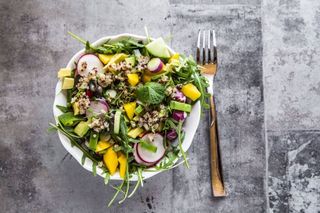
Vegan recipes
Sandra shares her tips, 'Just because you're vegan, that doesn't mean you can't still have a fantastic meal. There's free access to thousands of recipes online and there are some excellent vegan cookbooks on the market. Go Vegan World has its own free downloadable guide, which contains recipes and a weekly meal plan. It also includes tips on how to substitute animal foods and choose other products such as clothing and cosmetics.'
Luciano also adds, 'Contrary to popular belief a vegan diet doesn’t have to be boring or tasteless! There are many amazing recipes that I’ve tried, including Vegan Shepard’s Pie, Chickpea Curry and Vegan Vanilla Fudge Cupcakes.
Whenever I’m looking for inspiration, one of my all-time favourite vegan recipe sources is Jamie Oliver’s website.'
EDO is available to download on iPhone (App Store) and Android (Google Play). Used by over 400,000 people in Italy, it starts at £30 for a yearly subscription.
-
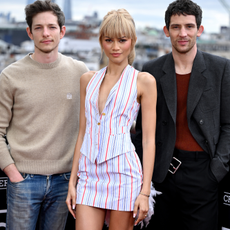 Zendaya's reaction to awkward kissing question during Challengers interview has gone viral
Zendaya's reaction to awkward kissing question during Challengers interview has gone viral'Uncomfortable' doesn't begin to cover it
By Iris Goldsztajn
-
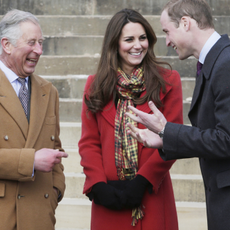 Prince William feels 'immense responsibility' amid Kate and Charles cancer diagnoses
Prince William feels 'immense responsibility' amid Kate and Charles cancer diagnosesHe has a lot on his plate
By Iris Goldsztajn
-
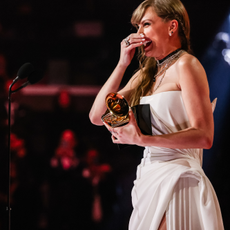 Taylor Swift just teased a 'timetable' for her new album release
Taylor Swift just teased a 'timetable' for her new album releaseThe wait is torture
By Iris Goldsztajn